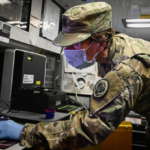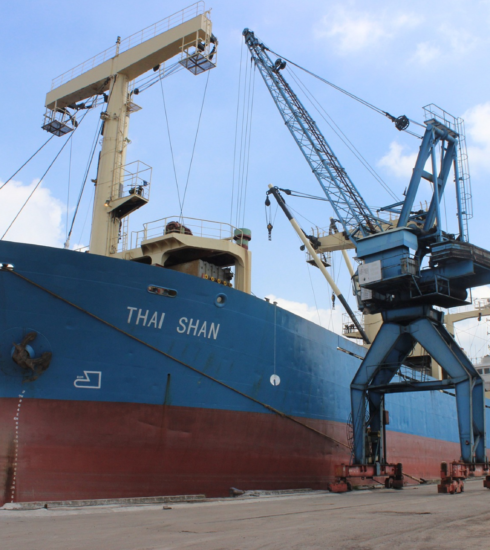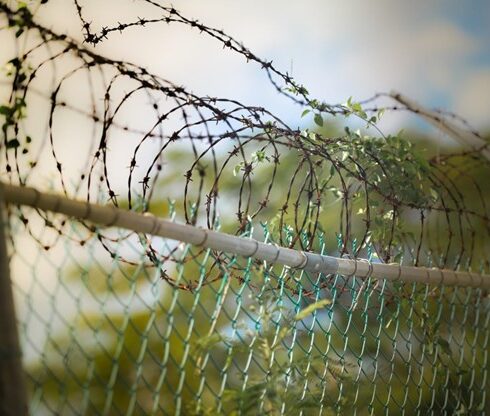Guinea-Bissau’s Role in International Drug Smuggling
Introduction
O
n the coast of West Africa, there is a small country distinguished by a history of coups and cocaine: Guinea-Bissau. Since the 1990s, Guinea-Bissau has been at the heart of a cocaine network that runs from Colombia to Southern Europe. While its citizens claim that cocaine is a “European problem,” the cocaine industry has left Guinea-Bissau impoverished, corrupt, and democratically incapacitated by drug kingpins and terrorist organizations. [1] As a center where several national security issues converge, the Guinea-Bissau region needs increased assistance from the United States.
The African Narco-State
Guinea-Bissau’s complex history created the corruptive systems of power that guide the nation today. For centuries, Portugal maintained control of Guinea-Bissau. However, Portugal’s interest in the region was strictly economic, which meant that it expended no resources to improve Guinea-Bissau’s political stability. [2] Thus, when Guinea-Bissau won independence from Portugal in 1974, it lacked the political institutions, economic resources, and national cohesion necessary to build a healthy state. [3] Instead, military force and patronage networks became the driving centers of power. [3] Corruption is the language of Guinea-Bissau’s political institutions, perpetuating cycles of instability.
This instability provided opportunity for Latin American drug cartels. In the 1990s, increased monitoring of established routes in Panama and Jamaica made cocaine trafficking more difficult. [4] The need for new transit points combined with the growing demand for cocaine in Europe led cartels to build networks in West Africa, particularly Guinea-Bissau. [5] Cartels relied on entrepreneurs with connections to both Guinea-Bissauan institutions of power and Latin American cocaine traffickers. [3] By establishing businesses as fronts for illicit drug trafficking, these entrepreneurs acted as the link between cartels and Guinea-Bissau’s elite. [3] This network is responsible for transporting $2 billion worth of drugs through Guinea-Bissau every year. [2] The cocaine industry transformed Guinea-Bissau into a “narco-state,” where the government and private sectors are deeply embedded in drug trafficking.
Politics, Price, & Proximity
With many West African countries plagued with poverty and political instability, Guinea-Bissau’s role in the cocaine trade may appear inconsequential. However, Guinea-Bissau has three unique elements that make it the perfect cocaine transit point: politics, price, and proximity. The political corruption that allowed cocaine to enter Guinea-Bissau in the 1990s is the same corruption that protects the cocaine industry today. Guinea-Bissau’s military and political elitists use the cocaine industry as a means for obtaining money. [3] This money can be used to buy allies among the elites and secure votes among the citizenry. Food, clothing, and material goods bought with drug money are an integral part of the patronage system embedded within Guinea-Bissau’s politics. [1] Thus, the political elites rely on drug money to secure their power, forcing them to protect the cocaine network and undermining democratic development.
Guinea-Bissau’s military and political elitists use the cocaine industry as a means for obtaining money. This money can be used to buy allies among the elites and secure votes among the citizenry.
Guinea-Bissau’s dead economy makes it lucrative territory for cocaine trafficking. With limited agricultural exports and no cohesive industrial sector, formal economic institutions have no avenue for prosperity. [2] Economic exports aside, most households within Guinea-Bissau lack secure access to food and water. [2] In a country where most people live in poverty, a drug industry fosters an underground economy that allows people in power to attain wealth. [2] Moreover, the Latin American cartels can exploit impoverished citizens for cheap transportation. [6] The key success of Guinea-Bissau’s cocaine network is mutual financial benefit for the involved parties. Locals accept any money cocaine trafficking provides; cartels take advantage of this, hiring smugglers for as little as $812. [7] In the multi-billion-dollar cocaine industry, this allows cartels to export narcotics through a region that lacks sufficient law enforcement interference and make a profit doing so.
Proximity is the final factor that accounts for Guinea-Bissau’s role in cocaine trafficking. For Colombian cartels, the most efficient way to transport cocaine to Europe is through West Africa. Using entrepreneurs and businesses as a front, the cartels can transport cocaine to Guinea-Bissau and use the network in West Africa to move the narcotics into Spain, France, and Italy. [4] Guinea-Bissau’s geography is a significant asset for this process because of its archipelago and coastline. [2] With around 90 islands, the archipelago makes it impossible for Guinea-Bissau to monitor the numerous boats traveling between the islands and mainland. [2] Drug traffickers use small speedboats to travel between islands at night, smuggling cocaine undetected. [6] Moreover, Guinea-Bissau’s Portuguese ties provide a linguistic connection between the Latin American cartels and the European buyers. [2] Guinea-Bissau is uniquely situated, geographically and historically, to act as the door between continents.
Terrorists & Narcos
In March 2019, the Guinea-Bissau Judicial Police ran a counternarcotics operation, seizing a shipment of horse mackerel with 1,739 pounds of cocaine inside. [6] This seizure marked the largest narcotics seizure in Guinea-Bissau since 2007. [1] More importantly, the incident revealed the connection between the Guinea-Bissau cocaine industry and al-Qaeda. This cocaine smuggling attempt was orchestrated by a Malian trafficker known as Rouggy. [8] Rouggy is a well-known smuggler linked to drug, human, and arms trafficking across West Africa. [8] He is on the United Nations sanctions list because he uses smuggling to fund al-Mourabitoun, a terrorist group linked with al-Qaeda. [6] According to Ruth Monteiro, former Guinea-Bissauan Justice Minister, the drugs in the horse mackerel shipment were intended for al-Qaeda to sell in support of terrorist activities. [9]
In September 2019, the Judicial Police ran a second operation that resulted in the seizure of 3,968 pounds of cocaine hidden in bags of rice. [1] The ringleader behind this shipment was a Mexican, Ramon. [1] Ramon was a longtime resident of Guinea-Bissau and the operator of several Colombian-owned businesses in Mexico City. [6] Ramon’s connections with Guinea-Bissau, Colombia, and Mexico seem to solidify the idea of entrepreneurs paving the route for cocaine trafficking between Latin American and West Africa. Moreover, this incident indicates that Latin American cartels still maintain a stronghold in Guinea-Bissau.
These incidents demonstrate the hydra effect crippling Guinea-Bissau. The hydra effect describes a situation where drug trafficking has a high profit, high demand, and easy entry requirements. [2] Narcotics traffickers have a wide range of smuggling routes both at sea and on land, which allows them to quickly adapt routes. Thus, when law enforcement tries to stop one avenue, more avenues open, making it nearly impossible to disrupt the network. More importantly, these networks are connected to Latin American cartels and terrorist organizations, including al-Qaeda. These are national security concerns that ought to draw U.S. attention to the Guinea-Bissau region.
Recommendation
Corruption within Guinea-Bissau means AFRICOM cannot easily support police or government activities. However, there may be room for AFRICOM to assist the Judicial Police in counternarcotics operations, especially in light of recent efforts to combat cocaine trafficking in the region. [9] AFRICOM may be capable of aiding the Judicial Police in reaching out to underdeveloped communities within the region. This could provide an opportunity to emphasize the damage the cocaine trade does to local citizens, particularly by highlighting the growing number of addicts within Guinea-Bissau itself. While the drug trade offers short-term monetary gain, there are long-term consequences that damage Guinea-Bissau’s economic and political development. Ultimately, Guinea-Bissau is a key player in terrorist and cartel networks that concern U.S. national security interests. As such, the U.S. needs to put additional resources into stabilizing the West African region.
[1] Mark Shaw & A. Gomes, “Breaking the Vicious Cycle: Cocaine politics in Guinea-Bissau,” Global Initiative, May 2020, https://globalinitiative.net/wp-content/uploads/2020/05/Guinea-Bissau_Policy-Brief_Final2.pdf.
[2] Colonel Stephen K. Van Riper, “Tackling Africa’s First Narco-State: Guinea-Bissau in West Africa,” United States Army War College, September 2014, https://publications.armywarcollege.edu/wp-content/uploads/2022/11/1288.pdf/.
[3] Mark Shaw, “Drug Trafficking in Guinea-Bissau, 1998-2014: The Evolution of an Elite Protection Network,” Cambridge University Press, 2015, https://www.jstor.org/stable/26309823?seq=1.
[4] Isabelle King, “Africa’s Narco-State: An Attempted Coup and Drug Trafficking in Guinea-Bissau,” Harvard International Review, 13 April 2022, https://hir.harvard.edu/narco-state-an-attempted-coup-and-drug-
[5] Raggie Johansen, “Guinea-Bissau: A New Hub for Cocaine Trafficking,” United Nations Office on Drugs and Crime, May 2008, https://www.unodc.org/documents/publications/Perspectives-May08-WEB.pdf.
[6] Micael Pereira, “The Bissau Corridor,” Pulitzer Center, 14 April 2022, https://pulitzercenter.org/stories/bissau-corridor.
[7] Lorraine Mallinder, “Still a narco-state?” Global Initiative, 27 March 2018, https://globalinitiative.net/analysis/guinea-bissau-illegal-drug-economy/.
[8] Micael Pereira, “How Cocaine Brought Guinea-Bissau, Mali, Mexico Close Together,” Pulitzer Center, 13 May 2022, https://pulitzercenter.org/stories/how-cocaine-brought-guinea-bissau-mali-mexico-close-together.
[9] BBC, “Cocaine and Guinea-Bissau: How Africa’s ‘narco-state’ is trying to kick its habit,” BBC, 28 May 2020, https://www.bbc.com/news/world-africa-52569130.amp





